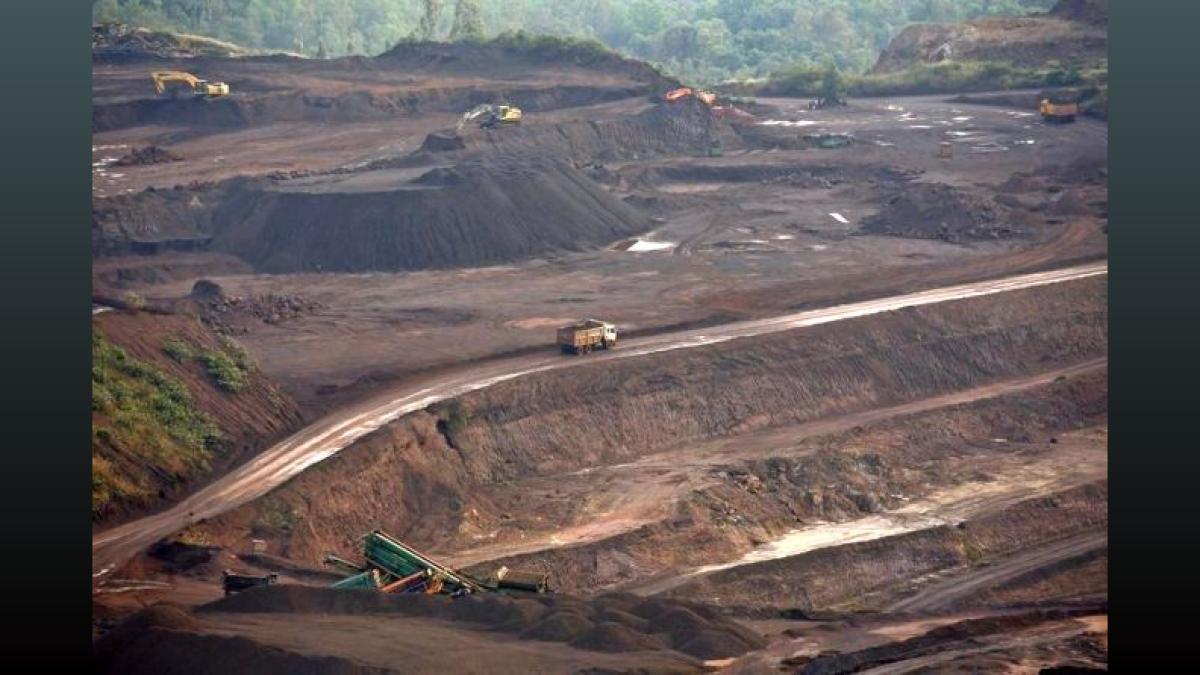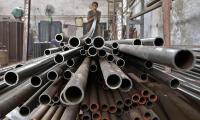CCI Study Flags Iron Ore Pricing, Export Issues
CCI study highlights concerns over iron ore pricing, captive mines, and exports. The regulator suggests promoting domestic steel production and sustainable mining practices.

Photograph: Danish Siddiqui/Reuters
New Delhi, Jan 1 (PTI) The differential pricing of iron ore is likely to create competition concerns and exports of iron ore should also be discouraged, according to a study by fair trade regulator CCI.
To ensure fair markets, the competition watchdog initiated a focused study on the mining sector, specifically iron ore in India, and its interconnected industries like steel.
The goal was to assess the competition perspective and determine if the iron ore market is functioning appropriately within the broader economic landscape.
In its market study on 'Dynamics of Competition in the Mining Sector in India With A Focus On Iron Ore', CCI has also flagged possible issues, with the pricing of iron ore from captive mines.
"The allocation of captive mines to some players creates entry barriers in the iron ore and steel sector as entry and successful operation becomes costly for new firms," the Competition Commission of India (CCI) said in a release.
As per the study, the differential pricing of iron ore for different end users is likely to create competition concerns.
The study observed that it is not possible to withdraw the already operational captive mines before the completion of their tenure as this could disrupt synergies and efficient production.
The amendments in mining law in 2021 have allowed the captive mines to sell up to 50 per cent of surplus iron ore in the open market, which is likely to boost the supply of iron ore in the market, the study said.
However, it noted that when a captive mine sells its surplus input to other entities, it is crucial to monitor the prices charged to ensure that it does not result in high costs for the buyer firm, especially if the buyer competes with a captive mine owned firm in the steel market.
"...exports of iron ore should be discouraged while simultaneously encouraging high value-added activities, including domestic production of steel, which will control the prices as well," CCI said.
To address the bottleneck in iron ore availability through e-auctions, the study suggested holding auctions weekly or bi-weekly, aligning with the business needs of the firms involved. This aims to enhance efficiency and accessibility in the iron ore market.
It also highlighted the importance of promoting sustainable mining by advocating rules that phase out 'dirty' technologies gradually.
The study emphasised the need for a clear regulatory framework to incentivise the adoption of clean technology and facilitate the transformation of production processes towards sustainability.
It has also recommended to ensure ease in implementing rules to alleviate the high cost of compliance for industry participants.
In the last few years, the competition watchdog has conducted several market studies in various sectors, such as e-commerce, telecommunication and pharma etc, CCI said.
These studies aimed to enhance understanding of market dynamics, bridge information gaps, and establish a robust intellectual foundation for competition rules.
To ensure fair markets, the competition watchdog initiated a focused study on the mining sector, specifically iron ore in India, and its interconnected industries like steel.
The goal was to assess the competition perspective and determine if the iron ore market is functioning appropriately within the broader economic landscape.
In its market study on 'Dynamics of Competition in the Mining Sector in India With A Focus On Iron Ore', CCI has also flagged possible issues, with the pricing of iron ore from captive mines.
"The allocation of captive mines to some players creates entry barriers in the iron ore and steel sector as entry and successful operation becomes costly for new firms," the Competition Commission of India (CCI) said in a release.
As per the study, the differential pricing of iron ore for different end users is likely to create competition concerns.
The study observed that it is not possible to withdraw the already operational captive mines before the completion of their tenure as this could disrupt synergies and efficient production.
The amendments in mining law in 2021 have allowed the captive mines to sell up to 50 per cent of surplus iron ore in the open market, which is likely to boost the supply of iron ore in the market, the study said.
However, it noted that when a captive mine sells its surplus input to other entities, it is crucial to monitor the prices charged to ensure that it does not result in high costs for the buyer firm, especially if the buyer competes with a captive mine owned firm in the steel market.
"...exports of iron ore should be discouraged while simultaneously encouraging high value-added activities, including domestic production of steel, which will control the prices as well," CCI said.
To address the bottleneck in iron ore availability through e-auctions, the study suggested holding auctions weekly or bi-weekly, aligning with the business needs of the firms involved. This aims to enhance efficiency and accessibility in the iron ore market.
It also highlighted the importance of promoting sustainable mining by advocating rules that phase out 'dirty' technologies gradually.
The study emphasised the need for a clear regulatory framework to incentivise the adoption of clean technology and facilitate the transformation of production processes towards sustainability.
It has also recommended to ensure ease in implementing rules to alleviate the high cost of compliance for industry participants.
In the last few years, the competition watchdog has conducted several market studies in various sectors, such as e-commerce, telecommunication and pharma etc, CCI said.
These studies aimed to enhance understanding of market dynamics, bridge information gaps, and establish a robust intellectual foundation for competition rules.
You May Like To Read
TODAY'S MOST TRADED COMPANIES
- Company Name
- Price
- Volume
- Sylph-Industries
- 0.72 ( 0.00)
- 69153969
- Vodafone-Idea
- 10.30 ( -2.92)
- 61239021
- Alstone-Textiles
- 0.15 ( 0.00)
- 43999040
- Sunshine-Capital
- 0.21 ( -4.55)
- 36012944
- Supha-Pharmachem
- 0.55 ( -19.12)
- 32854757






